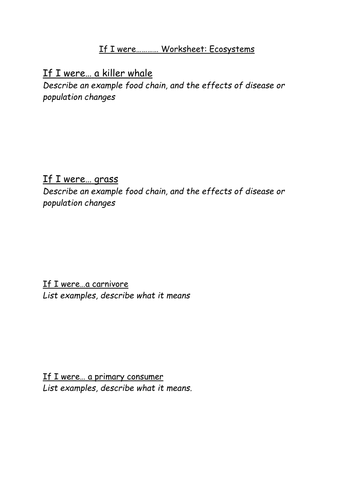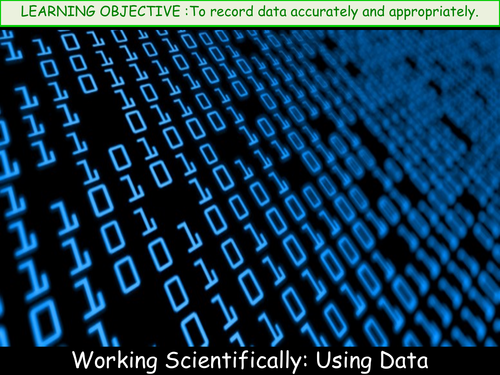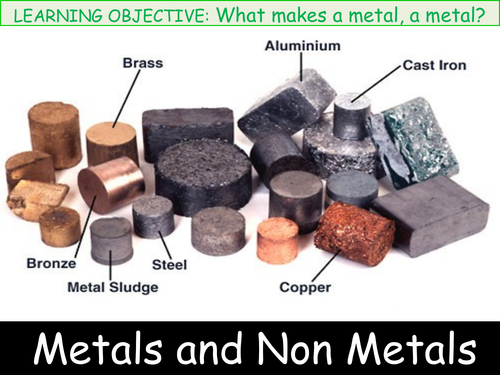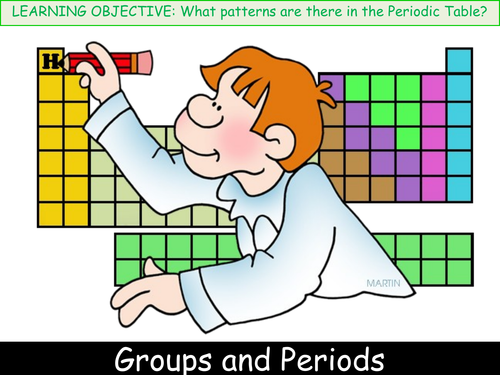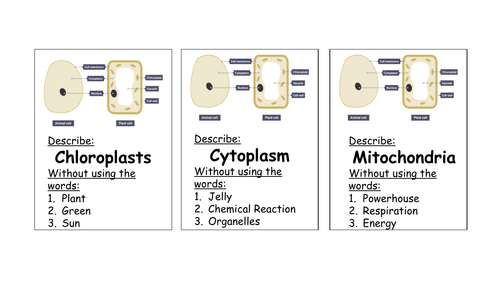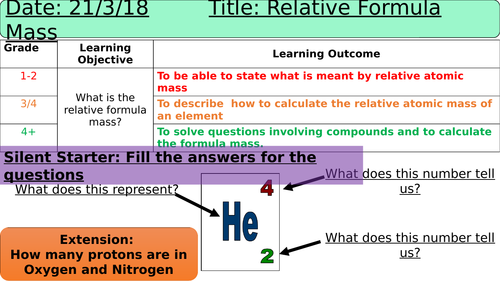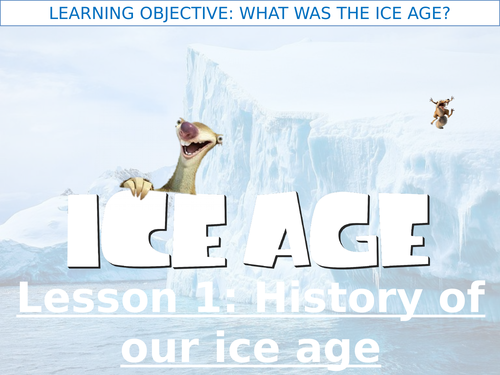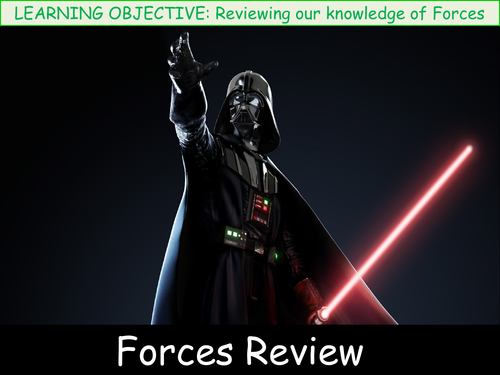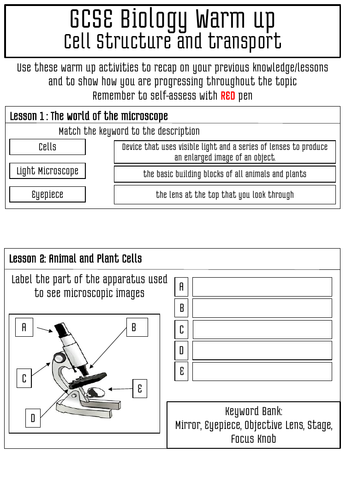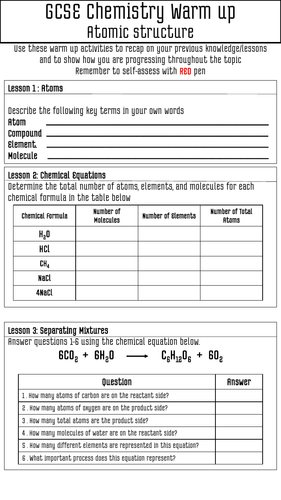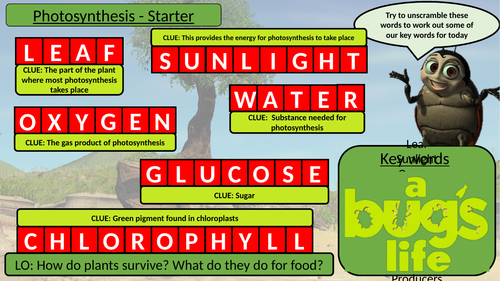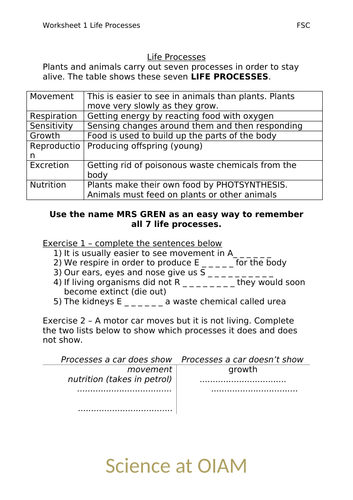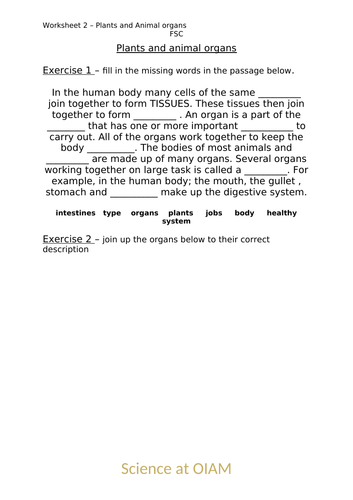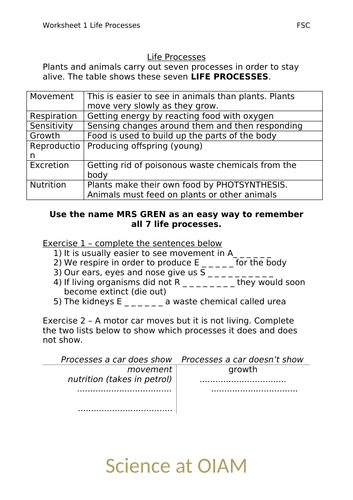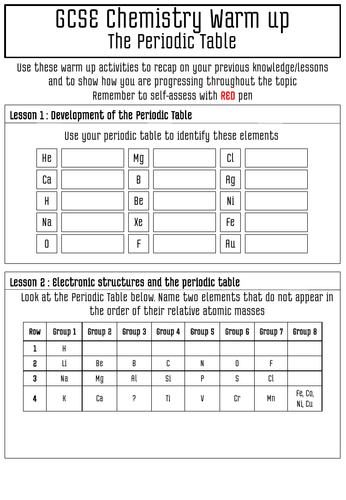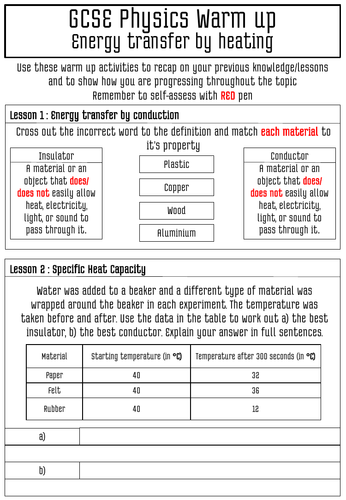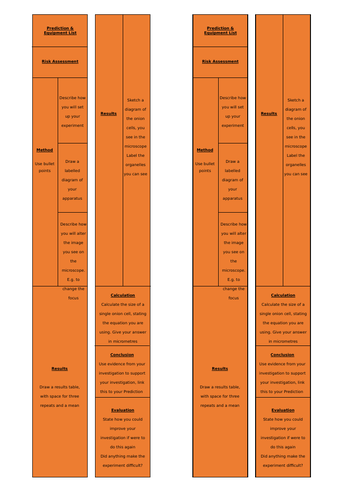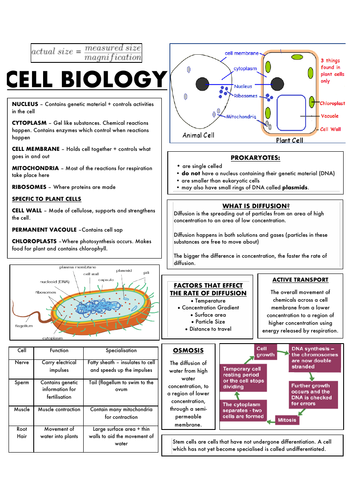
45Uploads
33k+Views
17k+Downloads
All resources

If I were: Ecosystems
Students put themselves into a role and describe what would happen in a food chain if certain conditions happened

Working Scientifically: Using data in tables
This is the first lesson in the Working Scientifically topic of Activate 2, directed at a mixed ability Yr 8 Science class.
The presentation includes a challenge question, support and extension tasks on all relevant slides. collaborative learning opportunities.
A worksheet including an outline of a suitable table to scaffold those who will struggle with the drawing speed or EAL
Success Criteria:
To identify the most important aspects of a results table.
To understand how to organise data in a table format.
To analyse the data and suggest improvements.
Please rate and comment on what you find useful so I can alter my lessons in future.
Many thanks

C2 Chapter 1.1 Activate 2 Metals and Non-Metals
This is the first lesson in the Periodic Table topic of Activate 2, directed at a mixed ability Yr 8 Science class with EAL activity and picture clues to support.
The presentation includes a super challenge questions, support and extension tasks on all relevant slides. collaborative learning opportunities.
All worksheets, scaffolded questions and challenging sections to stretch higher ability students are included in the PPT
Success Criteria:
Review you knowledge of common chemical elements
Identify properties of metals and non-metals
Compare the physical appearance and material behaviour of metals and non-metals
Please rate and comment on what you find useful so I can alter my lessons in future.
Many thanks

C2 Chapter 1.2 Activate 2 Group and Periods
This is the second lesson in the Periodic Table topic of Activate 2, directed at a mixed ability Yr 8 Science class with EAL activity and picture clues to support.
The presentation includes a super challenge questions, support and extension tasks on all relevant slides. collaborative learning opportunities.
All worksheets, scaffolded questions and challenging sections to stretch higher ability students are included in the PPT
Success Criteria:
The state the difference between a group and a period in the table of elements
Use patterns to predict properties of elements
Compare patterns in properties in group and elements
Please rate and comment on what you find useful so I can alter my lessons in future.
Many thanks

Cell Organelle Guess who
Students describe an organelle without using certain words to other students to guess. This can be used in whole class situation, or in small groups.
These are designed to be cut out and used in a Yr7 lesson however these could be used to refresh KS4 knowledge or supporting EAL learners.

Relative Atomic + Formula Mass
A lesson on the GCSE Quantitative Chemistry directed at a low ability Yr 10 Science class. There are some further activities to stretch learners.
The presentation includes support and extension tasks on all relevant slides. collaborative learning opportunities.
A rally coach worksheet included + a homework

Ice Age - What was the Ice Age?
This is the first lesson in an Ice Age theme designed for Winter Whole School Cross Curriculum
Include film clip, group activities and scientific enquiry to really engage your learners

Force Review Activate 1 P1 Forces
This is the review lesson in the Forces topic of Activate 1, directed at a mixed ability Yr 7 Science class.
Can be used as a DIRT activity
The presentation includes a challenging question, support and extension tasks on all relevant slides. collaborative learning opportunities.
A worksheet document includes levelled questions and challenging section to stretch higher ability students.

B1 Cell Structure and Transport Starters/Warm Ups
Starter activities for the entire topic of B1 GCSE Biology (AQA)
Sub topics include:
The world of the microscope
Animal and Plant Cells
Eukaryotic and Prokaryotic
Specialisation in cells
Diffusion
Osmosis
Osmosis in Plants
Active Transport
Exchanging Materials
Resources produced to use the starter as a recap from the previous lesson.
Suitable for a catch up resource, or GCSE revision.

C1 Atomic Structure Starter/Warm up
Starter activities for the entire topic of C1 GCSE chemistry (AQA)
Sub topics include:
Atoms
Chemical Equations
Separating Mixtures
Fractional Distillation and Paper Chromatography
History of the atom
Structure of the atom
Ions, atoms and isotopes
Electronic structures
Resources produced to use the starter as a recap from the previous lesson.
Suitable for a catch up resource, or GCSE revision.

Activate 2 Lesson 1 Photosynthesis
There is a full lesson , with PowerPoint covering photosynthesis
Levelled objectives are as follows:
•To state the substances needed for photosynthesis
•To describe the process of photosynthesis
•To be able to recall the word equation for photosynthesis
•To describe the process of photosynthesis in detail
•To suggest reasons why photosynthesis would or would not occur
This Document includes resources and learning activities with answers embedded and fully animated into the powerpoint slides. These activities include but not limited to card sorts (included) whiteboard activities - paired work, and literacy tasks
This lesson is also set in the theme of A Bug’s Life.

Life Processes worksheet - SEN
The aim of this resource is to provide complete revision of the topic “Life Processes” for KS3 Science; which is suited to/ aimed at lower abilities in particular.
This sheet provides pupils with the key facts of a topic and also contains one or more short exercises which have been designed to check pupils’ knowledge and understanding.
This sheet can be used in a number of ways:
to provide quality classwork and homework materials
for end of topic revision
to provide pupils with key facts of a topic they have missed

Plant and animal organs
The aim of this resource is to provide complete revision of the topic “Plant and Animal organs” for KS3 Science; which is suited to/ aimed at lower abilities in particular.
This sheet provides pupils with the key facts of a topic and also contains one or more short exercises which have been designed to check pupils’ knowledge and understanding.
This sheet can be used in a number of ways:
to provide quality classwork and homework materials
for end of topic revision
to provide pupils with key facts of a topic they have missed

Life Processes worksheet - Low Ability
The aim of this resource is to provide complete revision of the topic “Life Processes” for KS3 Science; which is suited to/ aimed at lower abilities in particular.
This sheet provides pupils with the key facts of a topic and also contains one or more short exercises which have been designed to check pupils’ knowledge and understanding.
This sheet can be used in a number of ways:
to provide quality classwork and homework materials
for end of topic revision
to provide pupils with key facts of a topic they have missed
Bundle

Biology, Chemistry, Physics 1 starter tasks
Starter activities for the entire topic of B1,C1 and P1 GCSE Biology, Chemistry and Physics (AQA)
Sub topics include:
Biology
The world of the microscope
Animal and Plant Cells
Eukaryotic and Prokaryotic
Specialisation in cells
Diffusion
Osmosis
Osmosis in Plants
Active Transport
Exchanging Materials
Chemistry
Atoms
Chemical Equations
Separating Mixtures
Fractional Distillation and Paper Chromatography
History of the atom
Structure of the atom
Ions, atoms and isotopes
Electronic structures
Physics
Changes in Energy Stores
Conservation of Energy
Energy and work
Gravitational Potential Energy Stores
Kinetic Energy and Elastic Energy Stores
Energy Dissipation
Energy and Efficiency
Electrical appliances
Energy and Power
Resources produced to use the starter as a recap from the previous lesson.
Suitable for a catch up resource, or GCSE revision.

C2 Chemistry GCSE AQA starter Warmups
Starter activities for the entire topic of C2 GCSE Chemistry (AQA)
Resources produced to use the starter as a recap from the previous lesson.
Suitable for a catch up resource, or GCSE Chemistry revision
Topics C2.1 - C2.5 covered

P2 Physics starters/Warmups
Starter activities for the entire topic of P2 GCSE Physics (AQA)
Topics included
Energy transfer by conduction
Specific Heat Capacity
Heating and Insulating Buildings
Resources produced to use the starter as a recap from the previous lesson.
Suitable for a catch up resource, or GCSE Physics revision

GCSE Biology Required Practicals Writing Strip
Designed to give students the ‘ideal’ structure of a scientific write up, it provides students with a format for what to include in each section, along with tips and success criteria. Each Required practical comes with an edit marking rubric which can be used as teacher feedback; however it is suitable to use as a peer marking grid
Each page has two copies which can printed and stuck in to the margin of the student’s book. The two sheets combined create a well structured and informative double page science write up.
The document is separated in sections for each GCSE Biology Combined Trilogy required practical.

Revision resource : Cell Biology
Worksheet to aid revision. Contains plenty of extra quick fire questions.

Year 5: Human life cycle
A resource for KS2, Year 5, to explore the stages of the human life cycle. Fully differentiated with Achieve, Build and Challenge tasks as well as plenty of formative assessment opportunites surrounding the keywords.

